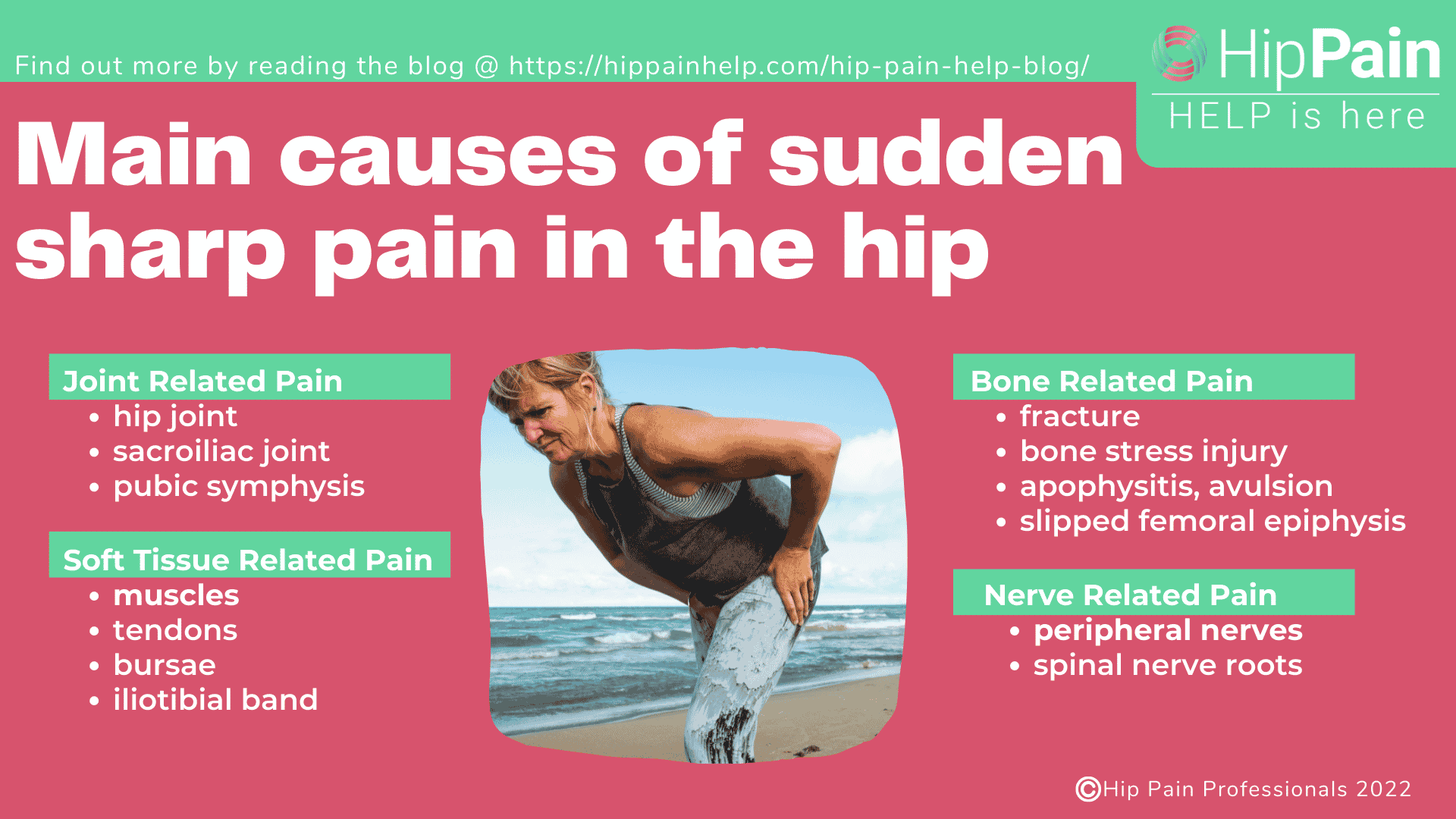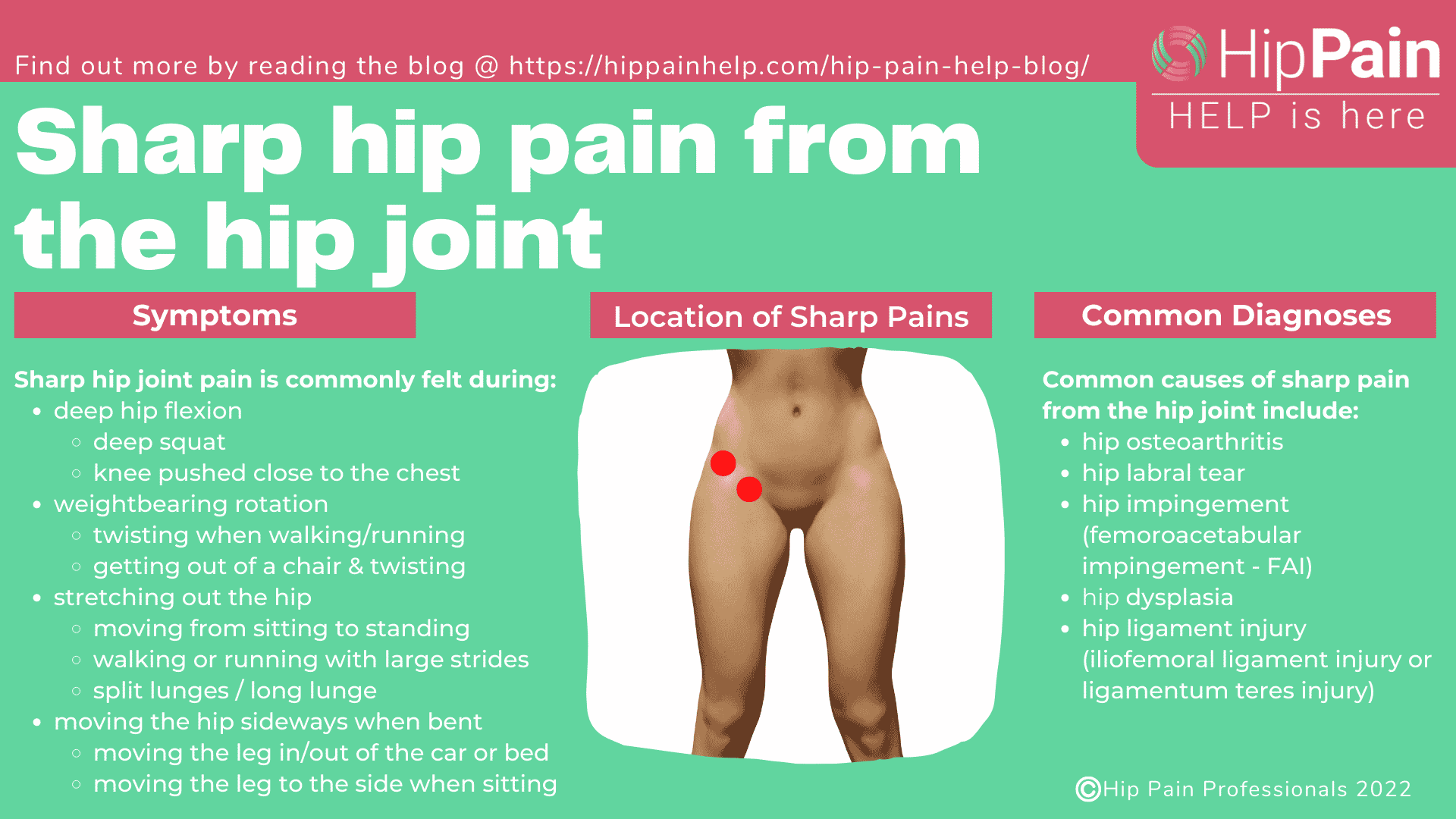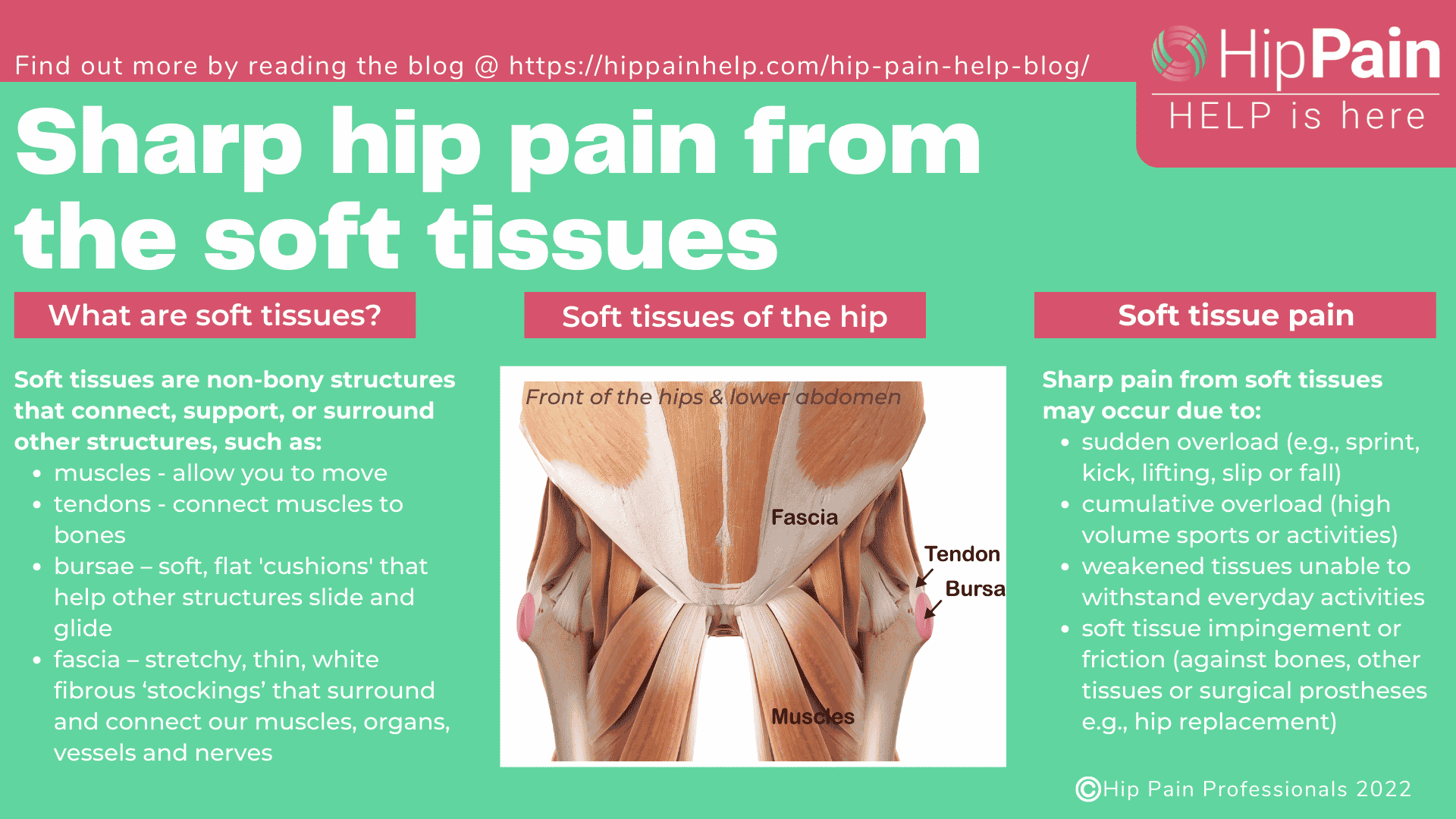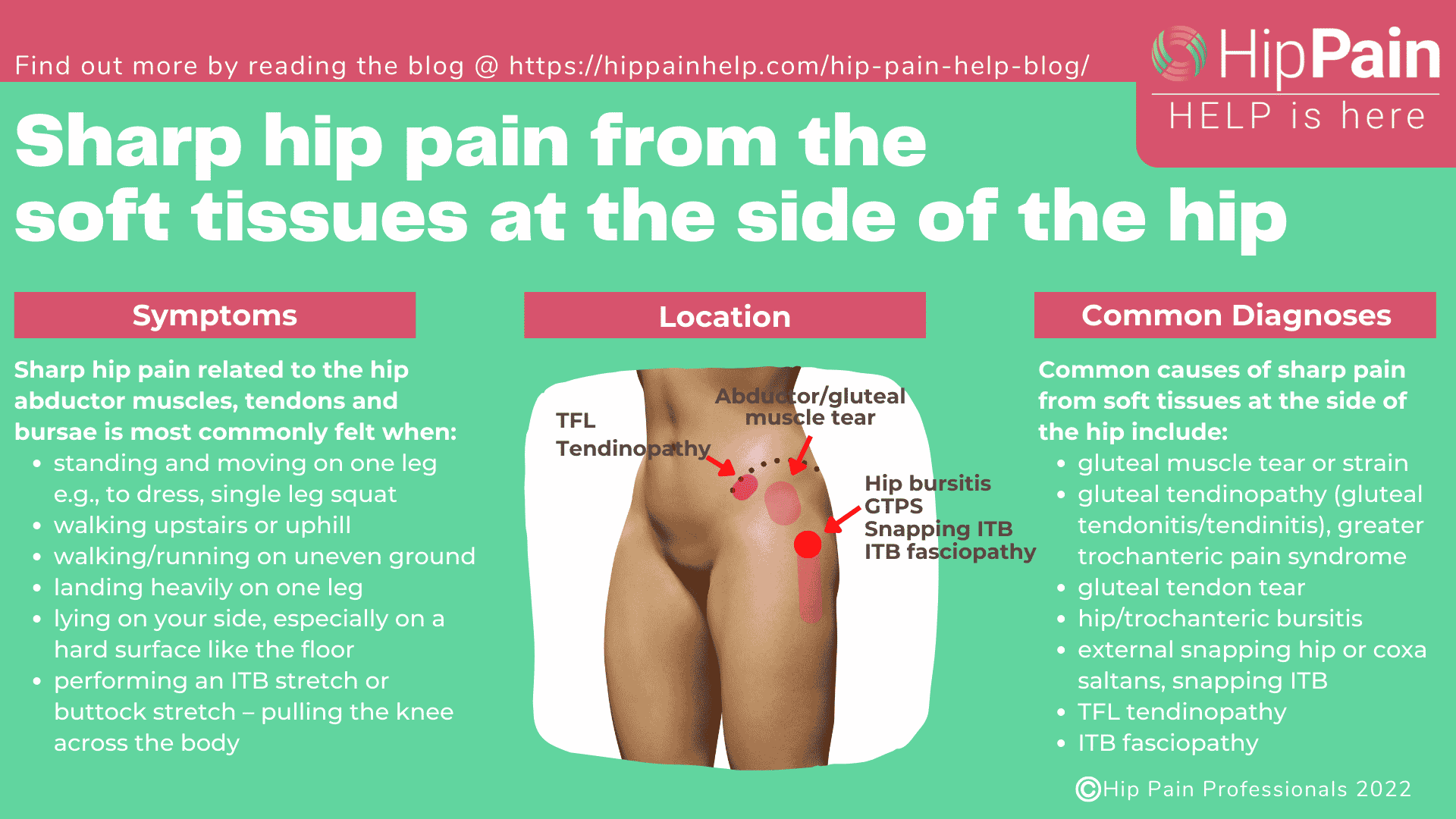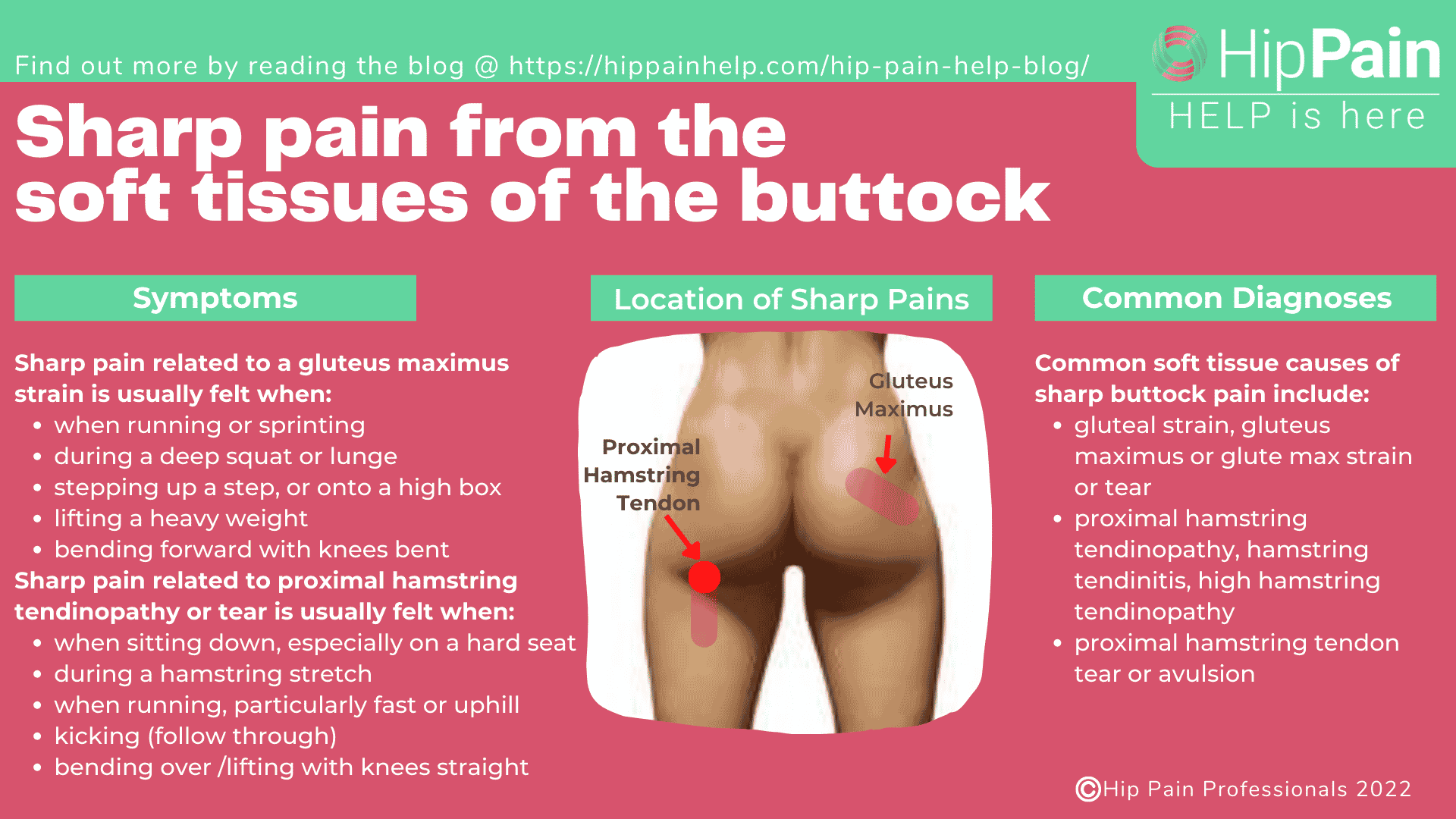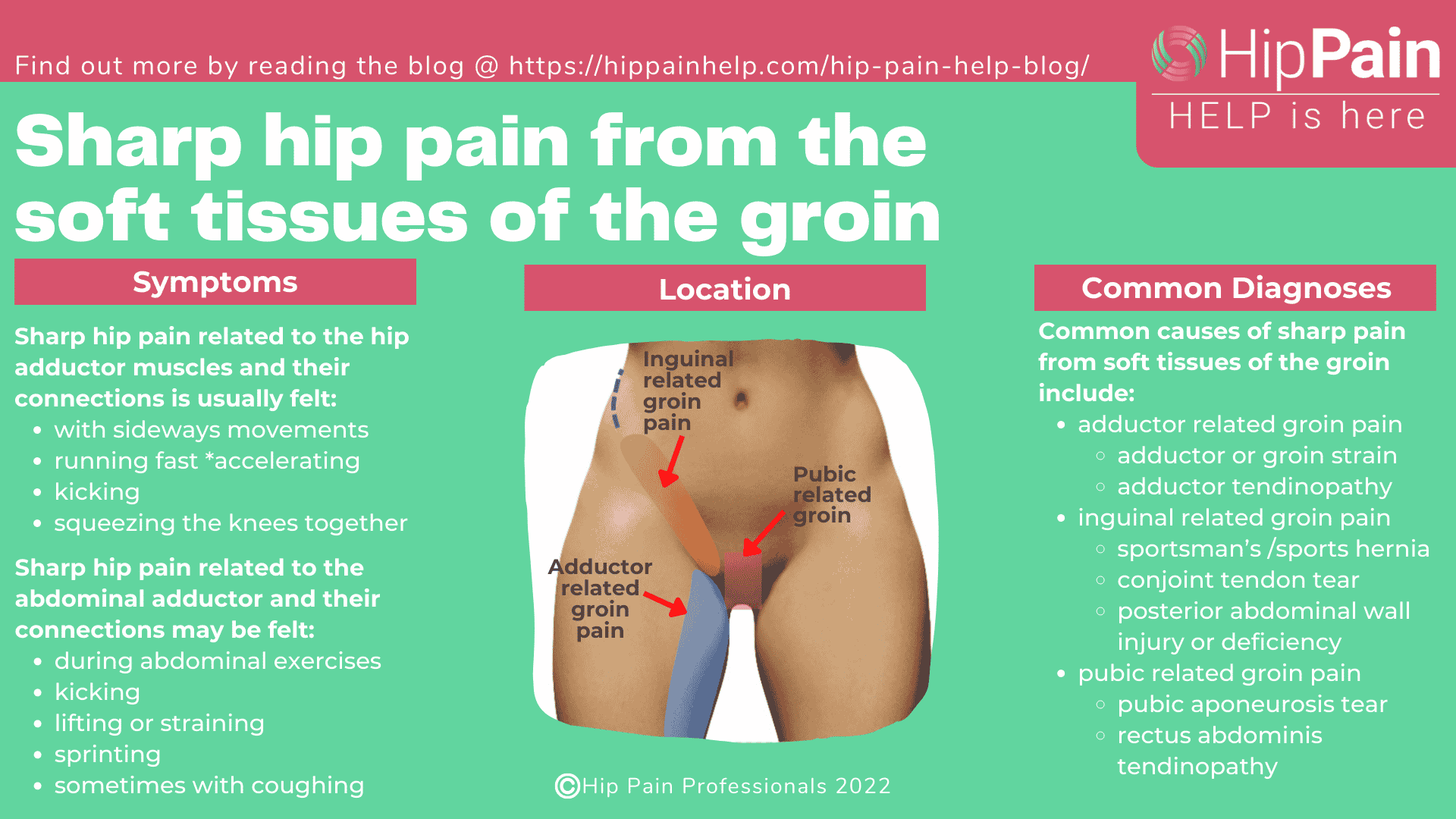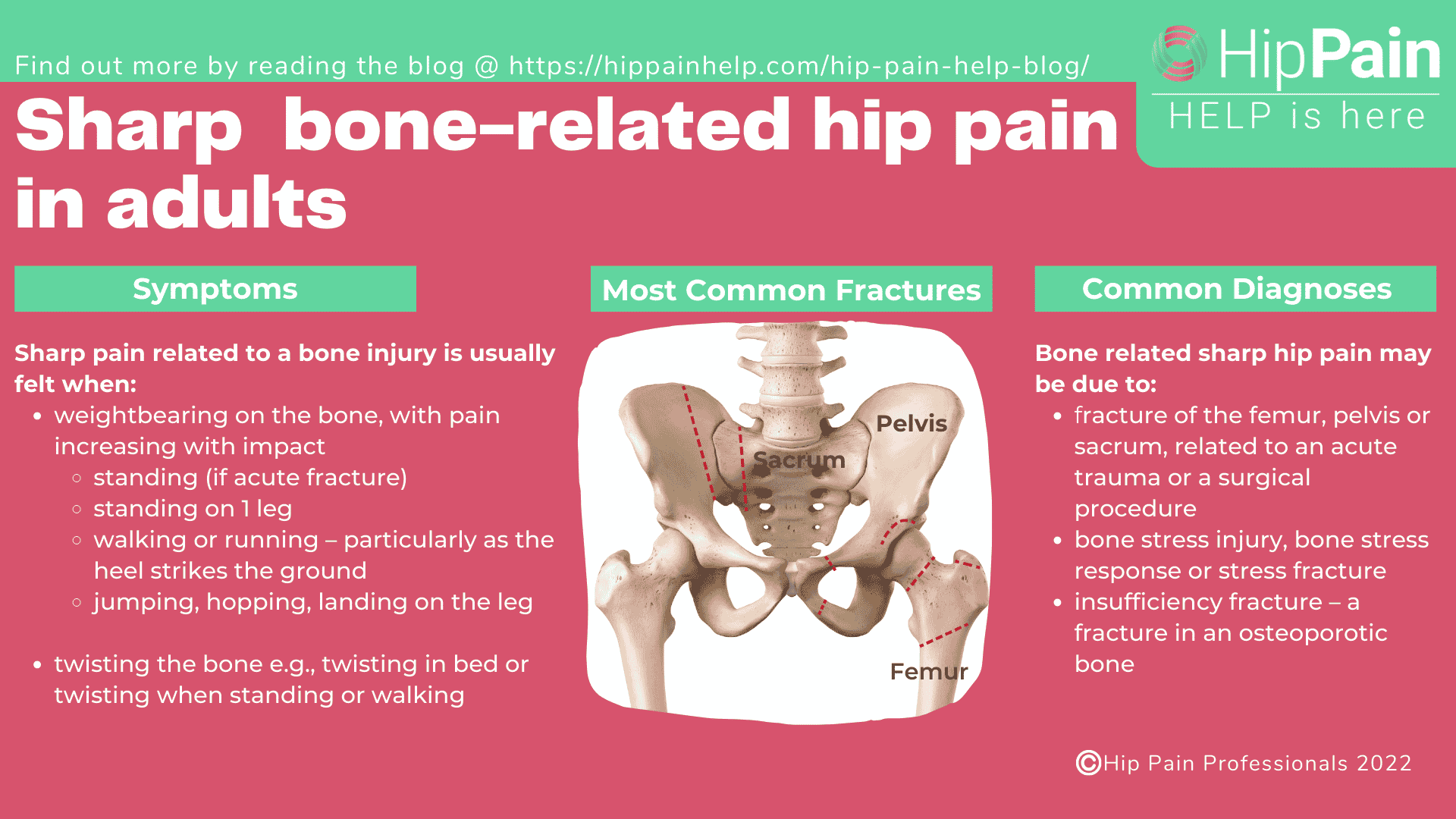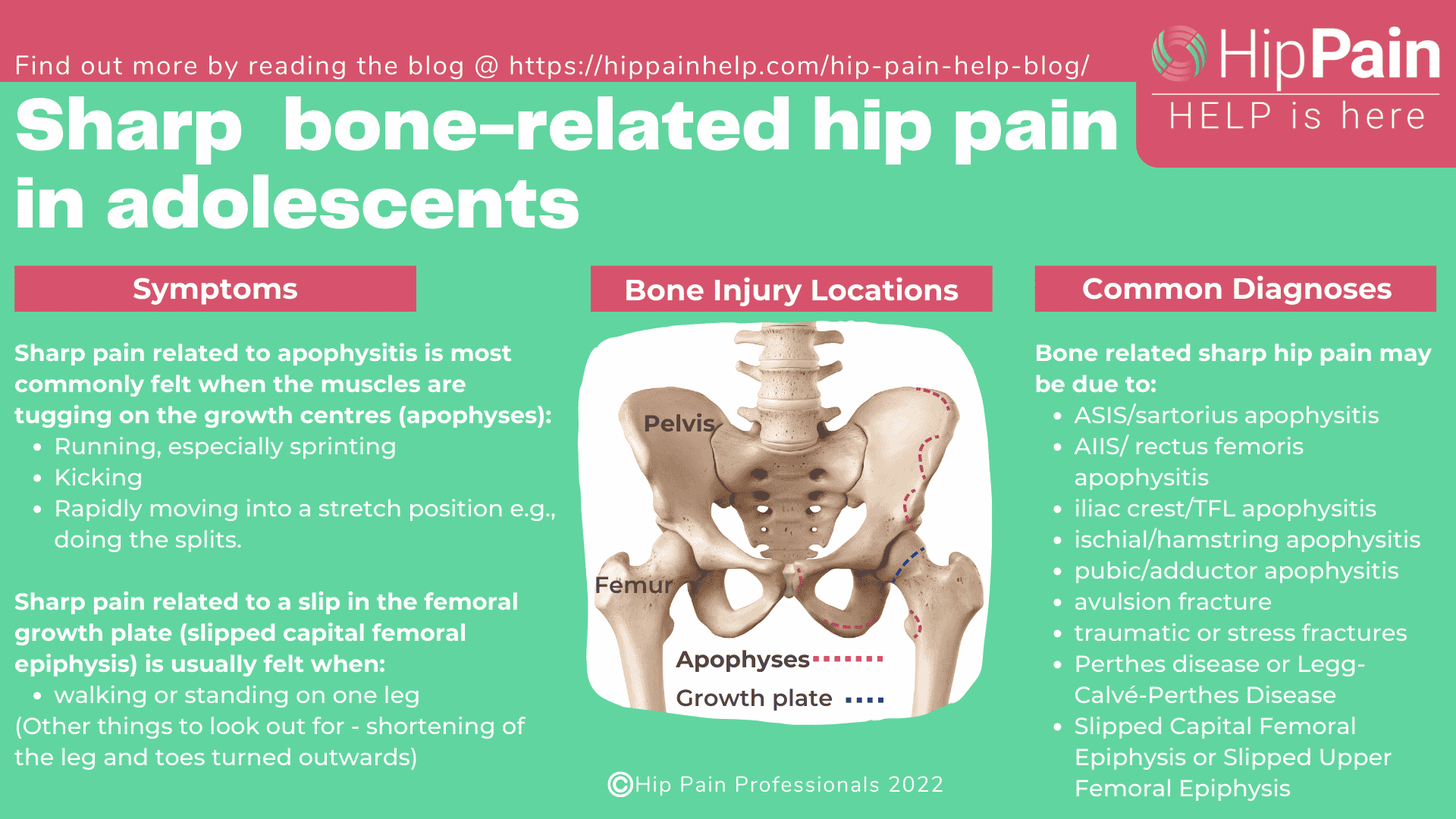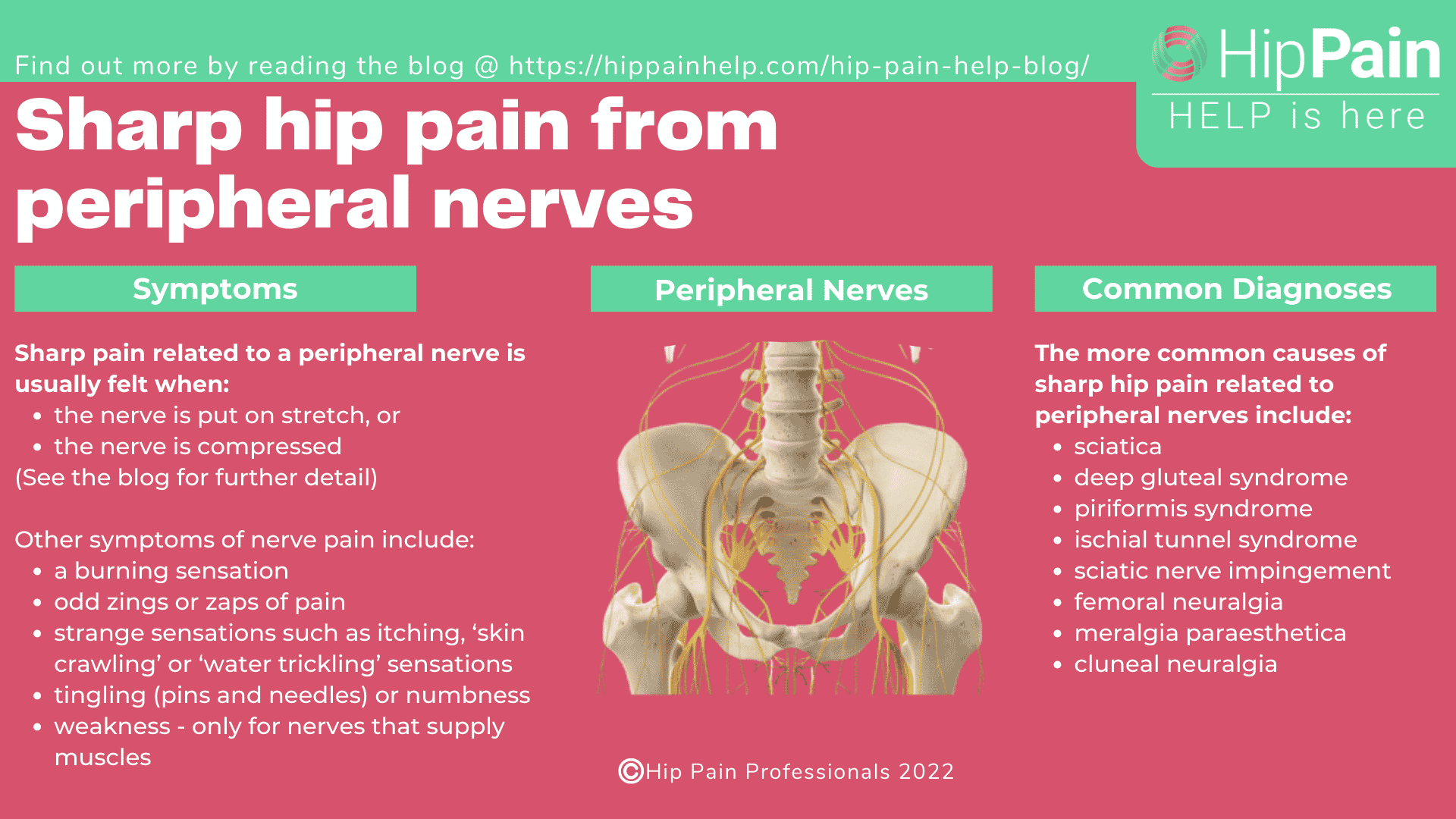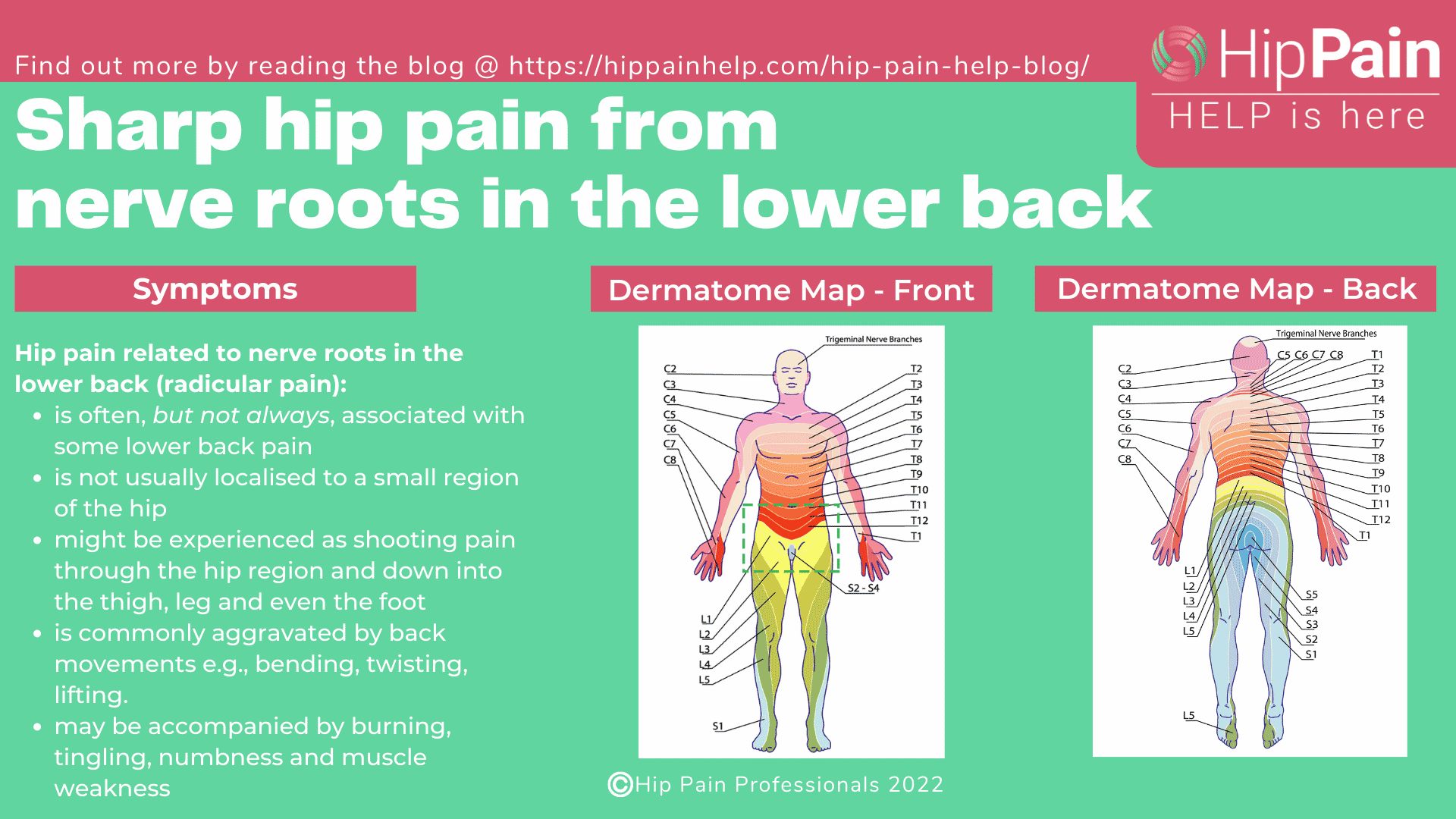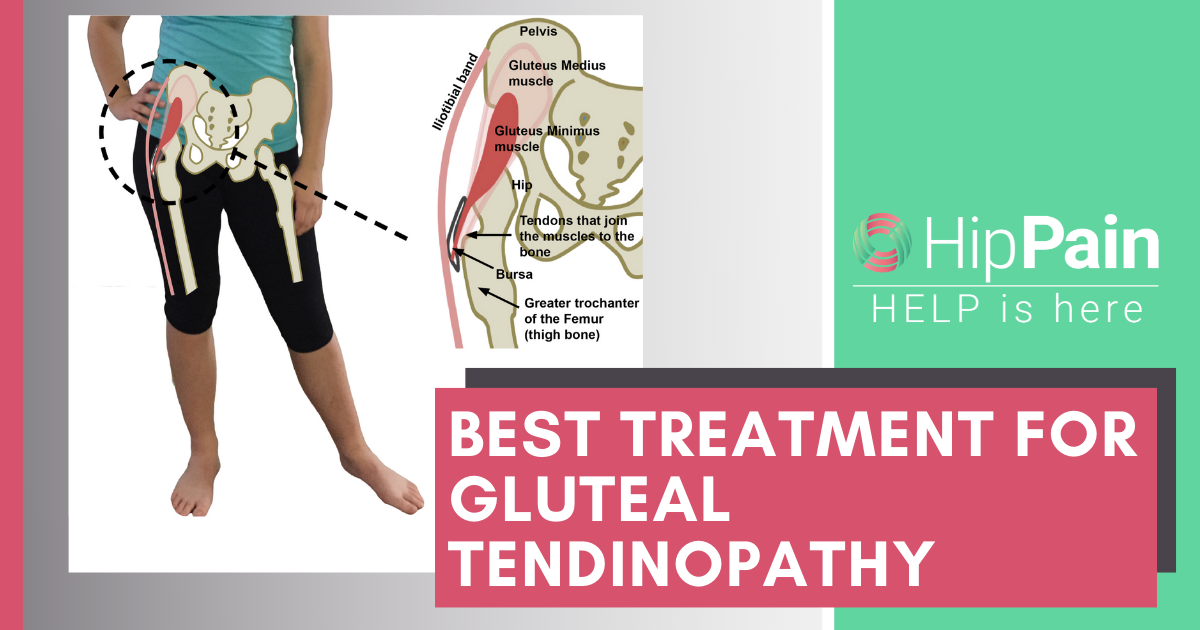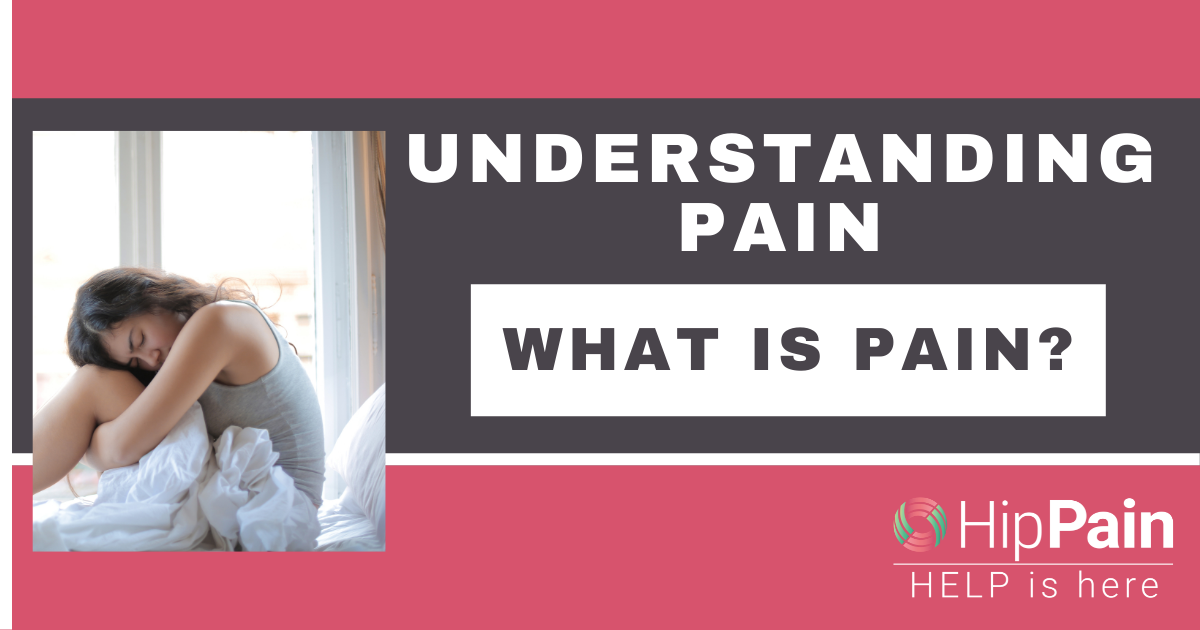The most common hip structures that can cause sharp hip pain are:
- the hip joint, including hip labral tear,
- the soft tissues, including muscle and tendons tear and bursitis,
- bones, including fracture or stress fracture, and
- nerves, including the sciatic nerve and many other smaller nerves around the hip.
For each of these potential causes, we’ll help you decide if this is a likely cause of your pain. We’ll be giving you clues about how where pain from each structure is felt and when you are most likely to feel the pain.
You might notice as you read on, that some of the activities that bring on the sharp pain will be similar for different causes. This is where the location of pain can assist in heading down a particular diagnostic path.
You’ll also find a list of common diagnoses for pain from each of these sources below.



